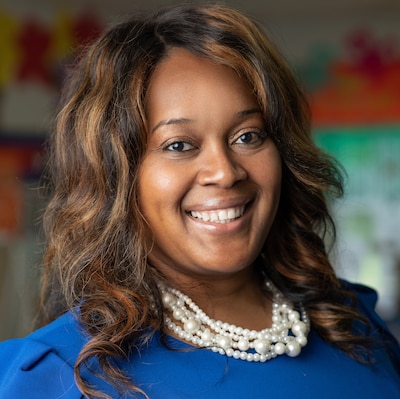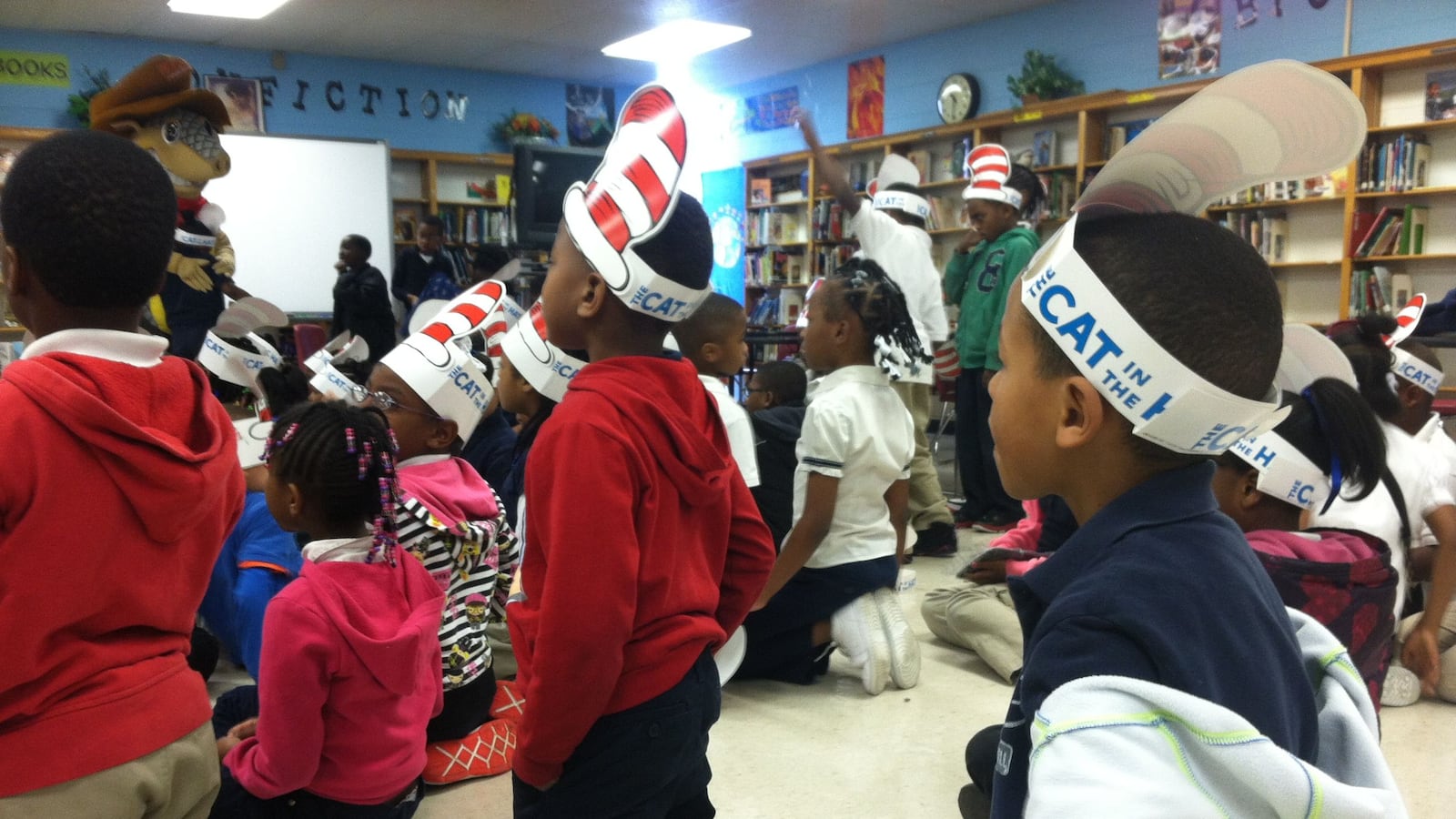Two of Regina DeLoach’s former elementary school teachers still message her on Facebook to check on how she is doing.
DeLoach said her second- and third-grade educators inspired her to go into teaching, and she got to work alongside them before they retired. Now in her 15th year as a special education teacher at Westhaven Elementary School, DeLoach says she still leans on their wisdom.
“They made learning fun and set a solid foundation for my love of learning,” she said. “They never forgot about me after I moved on to the next grade, even during high school and college. Still to this day, they ask my mother about me or send me a random message on Facebook to encourage or motivate me.”
DeLoach added that the best advice she has received came from her second-grade teacher, who encouraged her during her first year of teaching when some of her student’s grades were disappointing.
“She reminded me to never get discouraged and ‘Always remember if you are teaching, the students will learn. Don’t focus on numbers from the data wall, focus on delivering quality instruction and the numbers will come!”’
DeLoach spoke with Chalkbeat about the factors outside of her classroom that affect her students, why she couldn’t teach without her family, and why her favorite lesson to teach is on modes of communication. She was one of five Memphis educators selected by nonprofit New Memphis for its second class of the Educators of Excellence Awards, which honors nominated teachers in some of Memphis’ highest-needs schools with a prize of $1,500.
This interview has been lightly edited for clarity and length.
Was there a moment when you decided to become a teacher?
I have always aspired to become an educator. My second-grade teacher, Mrs. Nelson, and my third-grade teacher, Mrs. Cunningham, were excellent role models and former colleagues. I had the opportunity to work with them both during my third year of teaching before they retired.
I admired their love for education and their students. They made learning fun and set a solid foundation for my love of learning. They never forgot about me after I moved on to the next grade, even during high school and college. Still to this day, they ask my mother about me or send me a random message on Facebook to encourage or motivate me. I will never forget the impact they had on my education. I strive to be an educator like Mrs. Nelson and Mrs. Cunningham.
How do you get to know your students?
Building transparent and open relationships allows me to get to know my students and their families. I build warm, but strict, relationships where students know I have high expectations for them and I will not make exceptions to the expectations or rules already in place. They also know that I still love them and want what is best for them.
Tell us about a favorite lesson to teach.
My favorite lesson to teach was on modes of communication. The students explored both electronic and non-electronic communication. We researched the Pony Express, smoke signals, Morse code, hieroglyphics, and telegraphs. We also took a trip to the post office, and set up email addresses.
While reading the Flat Stanley book series, students created their own “flat person” and sent them on an adventure to a family member, friend or pen pal via a letter or email. I loved to see the looks on the students’ faces when they received a letter/package at the school or an email with their returned flat person explaining the adventure.
What object would you be helpless without during the school day?

I would be helpless without the picture of my family, which has always sat on or near my desk.
From fulfilling my Amazon classroom wish list to the daily motivational text message I receive from my mother, my family has always supported and encouraged me. The picture reminds me that just like my family is my biggest cheerleader, I must be the biggest cheerleader for my students by cheering them on to academic, social, and emotional success.
What’s something happening in the community that affects what goes on inside your class?
Several things out of my control and outside of school – violence, crime, poverty, and other traumatic experiences – affect what goes on inside my class. However, I cannot and do not allow those situations to affect my job as an educator.
I lean on my school’s counselors, as well as wraparound services provided to students, and social emotional professional development and training provided by the district, to ensure that each student feels comfortable, safe, and successful while in my care.
Tell us about a time when contact with a student’s family changed your perspective or approach.
As a special educator, I am tasked with advocating for my students to receive a quality education with additional services, if needed. While completing an initial individualized education plan meeting, a parent stopping me during the meeting because I was talking too fast and everything was confusing. I started the meeting over and explained each component to ensure the parent had a good understanding. That meeting changed my approach when conducting meetings. I not only must ensure that meetings are conducted and followed for compliance, but I must ensure that my parents are truly informed and have a clear understanding so that their child’s academic and social emotional needs are met.
What part of your job is most difficult?
The most difficult part of my job is not being able to control (or shield) the experiences and situations that impact my students. Some students are faced with so many things, they do not have the opportunity to simply be a child. Each day I strive to improve the quality of life that my students will experience after high school by offering them a quality education. I know that if my students believe in themselves regardless of uncontrollable circumstances and are provided the resources and mentors needed to meet their needs, they will persevere through challenges and be successful in their adult lives. This mindset drives my actions each day.
What was your biggest misconception that you initially brought to teaching?
Having the summer off is the biggest misconception I initially brought to teaching. I always find myself participating in something pertaining to education during the summer months. During the summer months, I’m either teaching summer school, attending professional development or taking graduate classes/courses. I am always in “school.” I’m always perfecting my craft either teaching, learning, or both.
What are you reading for enjoyment?
I am currently reading No Opportunity Wasted: The Art of Execution by Bishop Joseph W. Walker III. As an aspiring administrator, I want to ensure I take advantage of every opportunity I am presented to help me as I prepare to? impact the future leaders of tomorrow.
What’s the best advice you’ve received about teaching?
The best advice I’ve received about teaching came from my second-grade teacher who I also had the pleasure of teaching with. During my first year of teaching second grade, I felt overwhelmed after receiving the first quarter of student data.
She reminded me to never get discouraged and “Always remember if you are teaching, the students will learn. Don’t focus on numbers from the data wall, focus on delivering quality instruction and the numbers will come!”


